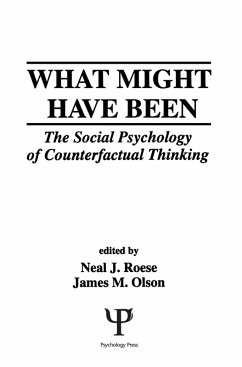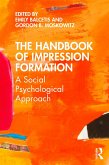Following the publication of Kahneman and Tversky's seminal 1982 paper, a burgeoning literature has implicated counterfactual thinking in such diverse judgments as causation, blame, prediction, and suspicion; in such emotional experiences as regret, elation, disappointment and sympathy; and also in achievement, coping, and intergroup bias. But how do such thoughts come about? What are the mechanisms underlying their operation? How do their consequences benefit, or harm, the individual? When is their generation spontaneous and when is it strategic? This volume explores these and other numerous issues by assembling contributions from the most active researchers in this rapidly expanding subfield of social psychology. Each chapter provides an in-depth exploration of a particular conceptual facet of counterfactual thinking, reviewing previous work, describing ongoing, cutting-edge research, and offering novel theoretical analysis and synthesis. As the first edited volume to bring together the many threads of research and theory on counterfactual thinking, this book promises to be a source of insight and inspiration for years to come.
Dieser Download kann aus rechtlichen Gründen nur mit Rechnungsadresse in A, B, BG, CY, CZ, D, DK, EW, E, FIN, F, GR, HR, H, IRL, I, LT, L, LR, M, NL, PL, P, R, S, SLO, SK ausgeliefert werden.









